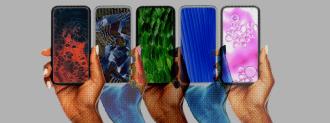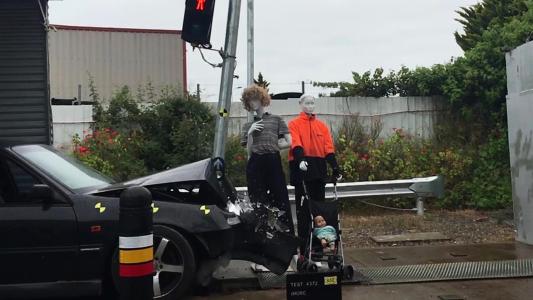It’s arguably the most famous phone number in North America. A beautifully simple premise: if there’s an emergency, you dial 911, and help will be on the way.
Except it’s not always quite that simple. There are times when help may be needed, but 911 may not be necessary; there are times — like perhaps during a mental health crisis — where people may prefer a response without the police who often handle general emergency calls.
Digital design firm Big Human has created an app to provide people with alternatives to 911 they can call for incidents that may not quite qualify as an emergency — or ones where guns and handcuffs aren’t necessary.
“Not every incident requires police intervention: Help should be tailored to the specifics of the situation—and Subdial makes it easy to find the most appropriate support when it’s needed,” the app’s website reads.
Not every emergency needs 911; sometimes a more specific alternative is appropriate.
Who you gonna call? Big Human’s Griselda Viteri was inspired to create Subdial during 2020’s police protests as a way to catalogue all of the information about alternatives to 911.
The app contains alternatives to 911 in cards with local and national resources listed on them. According to Subdial’s entry on TIME’s 100 Best Inventions of 2021 list, the app currently contains over 1,000 resources, vetted by the Subdial team, in its database.
Those alternatives to 911 are presented as cards split into categories including mental health, domestic violence, youth services, conflict mitigation, voting rights, harm reduction for substance use, and free legal services. Once users provide their location, they can search Subdial for whatever locally or nationally available resource may best suit their needs.
“The cards include phone numbers—with the option to immediately place a call—and directions to organizations’ physical locations, as well as links to their websites,” TIME reported.
Subdial organizes alternatives to 911 into cards, listing both local and national resources.
The right help, right away: Subdial could prevent unnecessary 911 calls which can tangle up emergency services. But its deeper value proposition is ensuring that the right kind of help shows up at your door.
Police response to mental health incidents sometimes turn tragic. Around a quarter of people shot by police are known to have suffered mental health problems. And while training in many places has improved, many officers are not trained how to handle someone in distress. In lieu of sending the cops, some cities are now trying crisis intervention approaches with responders who specialize in mental health.
In Eugene, Oregon, a mobile mental health clinic called CAHOOTS is sent to calls about mental health, homelessness, and addiction in lieu of the police, Freethink previously reported. CAHOOTS — which stands for “Crisis Assistance Helping Out On The Streets” — is run by Eugene-based nonprofit White Bird Clinic, which sends their own team, usually an EMT/nurse and a crisis worker with hundreds of hours in mental health training.
If I click on the mental health icon of Subdial, the app provides me with multiple alternatives to 911, both local to Chicago and nationally. There are numbers for hotlines run by Northwestern Memorial Hospital and nearby DuPage County, as well as multiple national hotlines, including those focused on sexual assault, domestic violence, and which focus on Asian, Black, and LGBTQIA communities.
The organizations listed have a brief description, hours of operation, and a button to call them.
All of the cards contain a brief description, the hours of operation — in this case, most are 24/7 — and a button to call them.
The app, available in both the Apple and Google Play stores, currently has alternatives to 911 in all 50 states, but is continuously looking to add more, and is free to download.
We’d love to hear from you! If you have a comment about this article or if you have a tip for a future Freethink story, please email us at [email protected].






